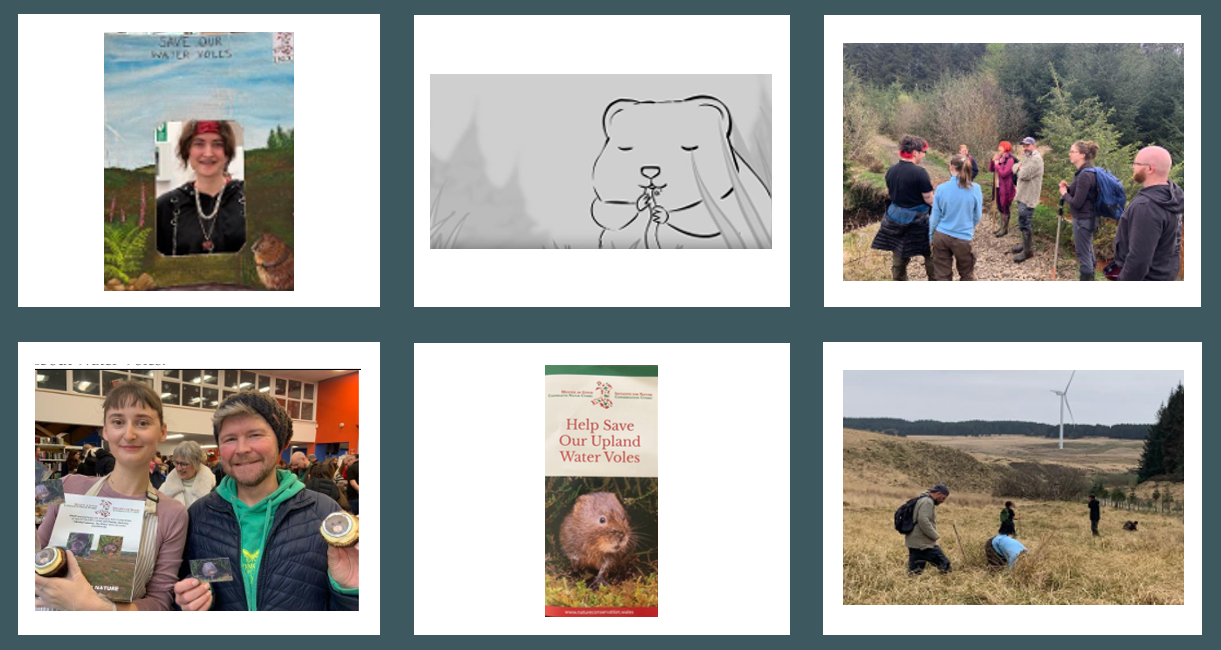Between September 2024 and March 2025, the Saving Our Water Vole project, led by the Initiative for Nature Conservation Cymru (INCC), has made significant progress in community engagement, education, and conservation across Rhondda Cynon Taf and Neath Port Talbot.
In December, INCC reached new audiences at the Treorchy Food Festival, using Water Vole-themed cupcakes and information cards to start conversations about local wildlife. Most attendees were new to nature conservation, making the event an important step in broadening public engagement. Since then, the project has distributed bilingual Water Vole leaflets across community venues and seen its newsletter subscriber base grow to over 50 individuals. A press release highlighting key discoveries from the project—such as the identification of new Water Vole colonies—generated widespread media coverage. The story was featured across multiple platforms, including BBC Radio Wales, BBC Cymru, BBC Radio 4, and BBC News at Six, significantly increasing public awareness of the species and the project.
Education and Volunteer Involvement – The project hosted multiple training events for volunteers and students, equipping participants with skills to identify Water Vole habitats and signs. In addition, INCC secured £10,000 in funding to support two college students with paid placements, offering valuable hands-on experience in ecological research and community outreach.
To appeal to a broader audience, INCC has commissioned a bilingual animation and is developing a children’s storybook titled The Adventure of Wyn the Water Vole. These materials will be used in school visits and community sessions later in 2025, helping to connect younger generations with Water Vole conservation through storytelling and art. The project is also contributing to scientific understanding of Water Voles through partnerships with universities. Current research includes DNA analysis of droppings to study colony relatedness, as well as gut microbiota studies to assess health and diet. These efforts will help inform long-term conservation planning.
What’s Next – Plans for spring and summer 2025 include continued surveys, school collaborations, community events, and the launch of a crowdfunder campaign. Engagement materials such as display boards, pop-ups, and pin badges have been developed to enhance outreach activities, and new collaborations—such as with local historical researchers and community groups—are broadening the project’s scope and appeal.

